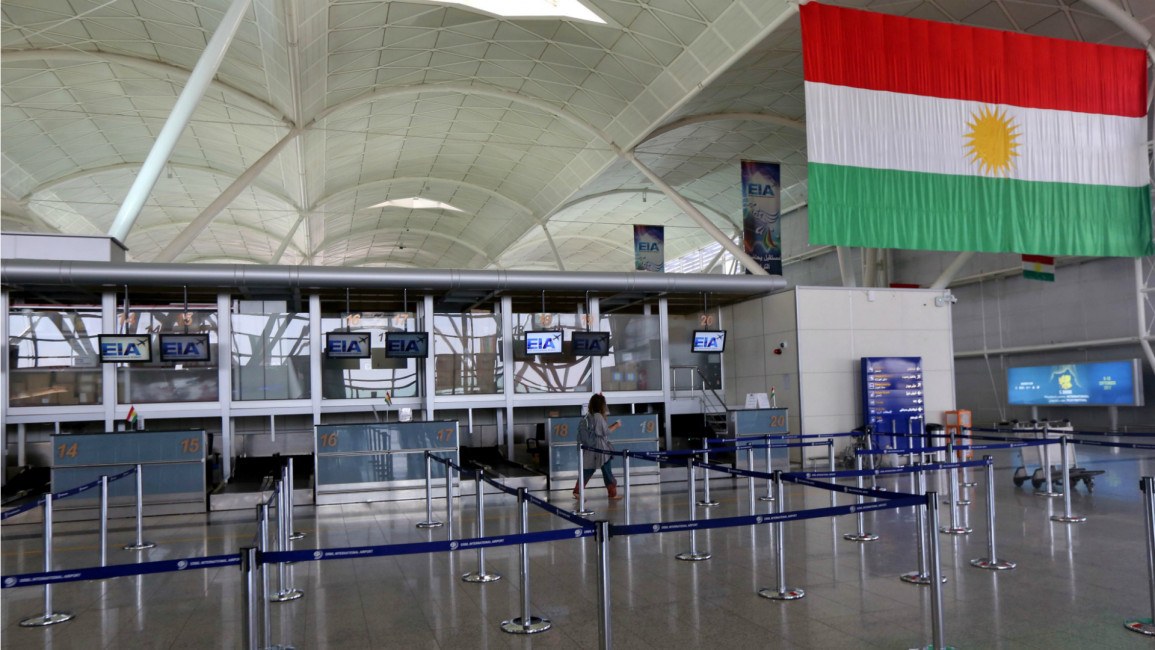Turkey claims 'security' reasons behind suspension of airspace access for Iraq's Sulaimaniyah airport
The Turkish foreign ministry announced on Wednesday the official suspension of its airspace access for flights from and to the Sulaimaniyah International Airport, citing security concerns regarding the Kurdistan Workers’ Party (PKK).
"Turkish airspace has been closed to aircraft which land/take off at Iraq’s Sulaymaniyah International Airport as of 3 April. The decision was taken upon the intensification of PKK terrorist organisation's activities in Sulaymaniyah, infiltration by the terrorist organisation into the airport and thus threatening of flight safety," the spokesperson of the Turkish Ministry of Foreign Affairs, Ambassador Tanju Bilgiç said in a statement.
"The decision will initially be valid until 3 July 2023 and will be re-evaluated in light of the developments that will be closely monitored in the run-up to that date," he added.
Turkey has been using its airspace as a form of pressure against the Iraqi Kurdistan region. Ankara has previously closed airspace in the aftermath of the Kurdish referendum for independence from Iraq on 25 September 2017.
Handren Hiwa Mufti, director of Sulaimaniyah International Airport, in a phone call with The New Arab, dismissed all of Turkey's allegations and asserted that the airport is civilian and "fully secured".
"I assure everyone that there are no suspicious activities inside Sulaimaniyah International Airport. The airport is under the inspection of the Iraqi civil aviation authority," Mufti said.
Previously, two helicopters mysteriously crashed in the Duhok province of the Kurdistan region on 18 March, killing at least nine members of the Syrian Democratic Forces (SDF), including SDF counter-terrorism commander Shervan Kobani - a cousin of SDF leader Mazloum Abdi.
The SDF said the delegation was on its way to Sulaimaniyah "to exchange security and military expertise", and they crashed due to "bad weather".
A source from the Kurdish ruling parties, speaking on condition of anonymity, told TNA that geopolitical reasons are behind Turkey's decision.
"It has been revealed that the ruling Patriotic Union of Kurdistan (PUK) has given the helicopters to the SDF, and secondly due to the PUK's support of the YPG," the source said.
Masrour Barzani, the prime minister of the Kurdistan Regional Government (KRG), last month also said that the crushed helicopter "had been purchased by a group within the PUK".
PUK's leader Bafel Talabani, in December, visited northeast Syria and met with Mazloum Abdi, the General Commander of the Syrian Democratic Forces (SDF) in northeast Syria, and senior political leaders. He also expressed support for Kurds in Turkey and Syria during a speech marking Newroz celebrations on 21 March.
Turkey and its Western allies blacklist the PKK as a terrorist group.
But, despite shrill complaints from Ankara, Washington supports the SDF, which is the Kurdish administration's de facto army in the northeast and led the battle that dislodged the Islamic state militants from its last scrap of territory in Syria in 2019.
Ankara regards the YPG, a dominant faction in the Syrian Kurdish administration, as an offshoot of the PKK and has mounted repeated armed incursions to force its fighters out of areas near the border.



